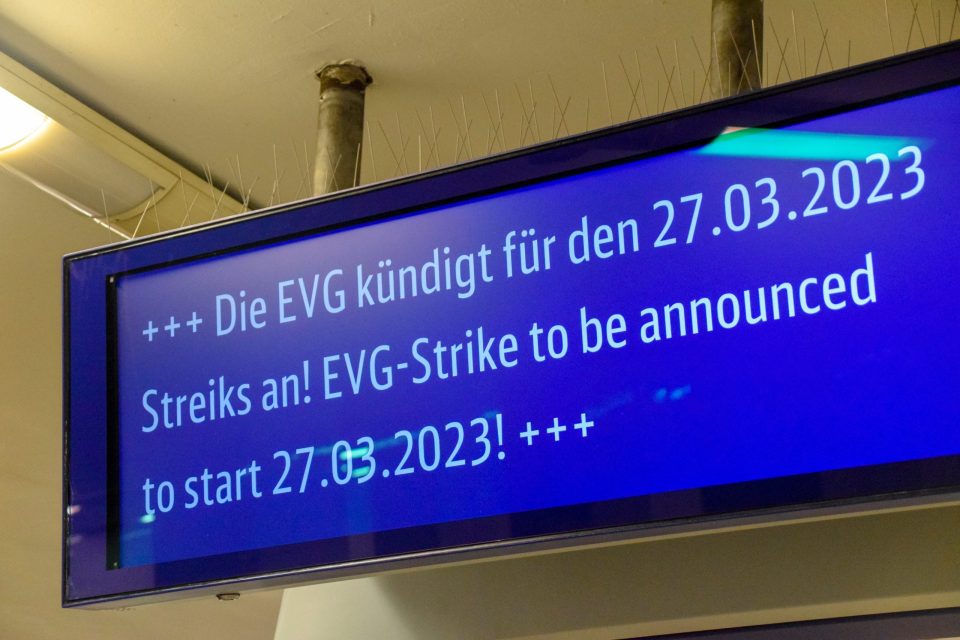DB and EVG enter new negotiations round after two warning strikes

In another attempt to find common ground, the rail transport association EVG and Deutsche Bahn will be on the negotiations table today and tomorrow, 24 and 25 April. The objective is to settle the collective bargaining dispute and to avoid another massive railway strike on the German railway network.
This will be the second round of negotiations between the two parties. The first round started on 28 February, and it was a rough one from the very beginning. EVG demanded a 650-euro monthly salary increase for all employees or a 12 per cent increase over the next 12 months.
In return, DB offered a five per cent salary increase in two stages, a bonus of 2,500 euros to cover increased inflation-related costs, a 13 euros per hour minimum wage for railway employees and adjustments of regional differences noticed in employee compensations.
On top of that, DB proposed adopting the latest arbitrator’s ruling for public sector wage disputes and adjusting it for a tailored railway solution. This solution would provide tax and levy-free inflation compensation in several stages totalling 3,000 euros, and it is applied to 2,5 million federal and local government employees.
Warning strikes
EVG rejected DB’s offers after characterising them as “mocking, offensive and unacceptable”. That is why the largest railway union in the country called for two warning strikes, one on 27 March and one on 21 April. The nationwide strike in late March considerably impacted freight and passenger transport, leading it to a standstill. On the other hand, last week’s industrial action was shorter and mostly affected passenger rail.

In any case, both served as a substantial warning of the looming dangers if DB and EVG don’t reach an agreement soon. EVG seems determined to stand its ground and demands, but the same applies to DB, which considers the strike actions “incomprehensible and irresponsible,” leading the negotiations to an “unnecessary escalation”.
Main dispute points
With virtually no progress in the negotiations, the main agenda topics for these two days are the 650-euro salary increase that EVG pursues and the minimum wage threshold. The two parties will likely engage in a tug-of-war game for the first agenda topic since DB considers the request unrealistic.

For the second discussion pillar, the two sides seem to be closer. Specifically, EVG has been asking for a 12 euros per hour minimum wage for months and wants it to be implemented immediately. On the other hand, DB offered a 13 euros per hour minimum wage with effect from August 2024. Consequently, at least for this point, DB and EVG could find some common ground and get closer to a resolution, mainly concerning the time frame of the measure’s implementation.
In any case, the results of this negotiation round will be very critical since they could result in more warning strikes or even full-scale industrial action to push negotiations even more. Will rail strikes take over the German network during the summer? If this is the case, the industry will face one of the largest-scale rail strikes of recent years.
Also read:




